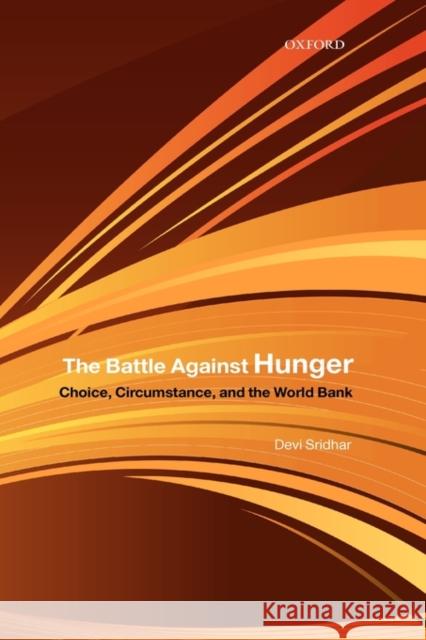The Battle Against Hunger: Choice, Circumstance, and the World Bank » książka
The Battle Against Hunger: Choice, Circumstance, and the World Bank
ISBN-13: 9780199549962 / Angielski / Twarda / 2008 / 256 str.
We live in an increasingly prosperous world, yet the estimated number of undernourished people has risen, and will continue to rise with the doubling of food prices. A large majority of those affected are living in India. Why have strategies to combat hunger, especially in India, failed so badly? How did a nation that prides itself on booming economic growth come to have half of its preschool population undernourished?
Using the case study of a World Bank nutrition project in India, this book takes on these questions and probes the issues surrounding development assistance, strategies to eliminate undernutrition, and how hunger should be fundamentally understood and addressed.
Throughout the book, the underlying tension between choice and circumstance is explored. How much are individuals able to determine their life choices? How much should policy-makers take underlying social forces into account when designing policy? This book examines the possibilities, and obstacles, to eliminating child hunger.
This book is not just about nutrition. It is an attempt to uncover the workings of power through a close look at the structures, discourses, and agencies through which nutrition policy operates. In this process, the source of nutrition policy in the World Bank is traced to those affected by the policies in India.











